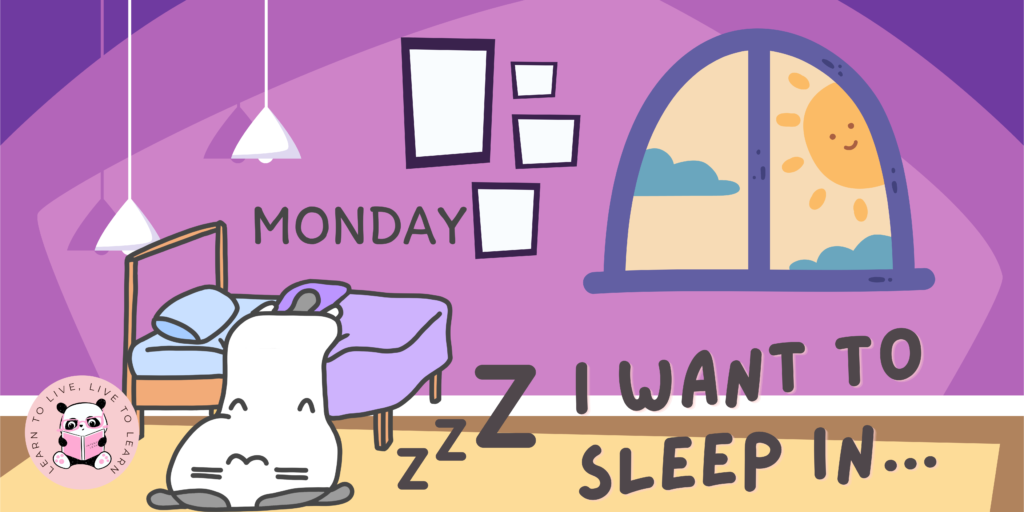Build A Mind Gym: 13 Habits To Be Smarter
Written by Michelle Ong | March 15, 2024 | Growth

Discover the 13 habits that can make you smarter and incorporate them into your own mind gym.
We all want to be smarter, but intelligence isn’t just about natural talent—it’s something you can develop. Like a muscle, your brain strengthens with regular training. This article explores practical ways to boost brainpower by focusing on your strengths and building effective habits. Let’s dive in.
1. Be Curious
“The mind is not a vessel to be filled, but a fire to be kindled.”
Plutarch
Keep your curiosity alive! Always be eager to learn and understand new things. This helps expand your mind and keeps your brain muscles flexing. Don’t shy away from relearning stuff either. Things change over time, and what you thought was true might not be anymore. It’s crucial to stay up-to-date and toss out any old, outdated info cluttering up your brain.
2. Don’t Assume
“The only true wisdom is in knowing you know nothing.”
Socrates
Our beliefs and thought patterns influence our perspective, shaping how we perceive the world. When making decisions, we often lean towards what aligns with our existing beliefs. However, it’s essential to challenge these assumptions. Check out this article to learn more about ways you may inadvertently sabotage yourself.
Questioning and not merely accepting things as they are fosters openness and humility, acknowledging that our understanding is not absolute. Remaining flexible in our thinking enables faster adaptation to new circumstances.
3. Think Critically
Learning to think independently and objectively is a powerful skill that can prevent stress, embarrassment, and lead to better decisions. This skill improves with practice and enables you to make choices aligned with your beliefs.
Think like a detective, dissecting situations to form opinions based on evidence rather than following the crowd. It fosters creativity, finding new solutions, and is essential for becoming smarter.
Check out this article for more tips on developing critical thinking skills.
4. Does It Make Sense
When facing a new problem, simplify by focusing on the essentials. Evaluate solutions based on your understanding, not blindly following others. Break down the problem into manageable parts and address each systematically to find a logical solution, avoiding undue influence and ensuring efficiency.
5. Question
Don’t just accept things as they are presented to you. Always ask questions like “why” and “how.” Dig into where the information comes from and what might be motivating it.
Don’t blindly trust everything you hear or see, even if it’s from someone you usually trust. Sometimes, even the most reliable sources can have their own biases or hidden agendas. It’s important to stay open-minded and consider different perspectives.
Life is full of surprises and uncertainties, so it’s good to be prepared for the unexpected. This mindset encourages creative thinking and innovation. Remember, it’s okay to question things, but do it respectfully, especially when dealing with other people’s opinions.
Check out this article on mindsets to avoid and develop to set yourself up for success.
6. Don’t Be Afraid To Look Stupid
“Fear is the barrier between where you are and where you want to be. Break through it, and you’ll find the path to wisdom and growth.”
Fear of appearing foolish can hinder learning by discouraging questions and risking mistakes. Balancing curiosity with thoughtful inquiry is key to overcoming this barrier and fostering growth without letting fear impede progress.
7. Read Widely
Expanding your knowledge is essential for enhancing intelligence. Start by creating a diverse reading list that includes unfamiliar topics to broaden your perspectives. Incorporate educational podcasts into your daily routine to learn something new regularly. Engage in structured learning through online courses, workshops, or conferences to deepen your understanding.
Collaborate with peers at your level to gain fresh insights and foster collaboration. Subscribe to newsletters for insights into your interests and stay updated on trends. Experiment with different learning methods to find what suits you best.
Designate a dedicated learning space to optimize focus and concentration. Track your progress to stay motivated and celebrate achievements, ensuring you understand and apply what you learn effectively.
8. Use Spaced Repetition
To enhance learning and memory, use the spaced repetition method. This technique involves testing yourself on information at intervals to reinforce learning over time, aiding in long-term memory retention.
Our brains aren’t built to hold onto information forever. Instead, they’re designed to generate ideas and solve problems. So, becoming smarter involves more than just acquiring knowledge. It also requires recognizing patterns, making connections, and applying learning to real-world situations.
Consistency is crucial—regular practice of spaced repetition ensures information stays fresh in your mind, improving recall when needed.
9. Apply What You Learned
a) Share With Others
Sharing your knowledge with others is crucial for deepening your understanding and improving communication skills. Teaching forces you to organize your thoughts clearly and make connections between ideas, enhancing your understanding of the topic better. And by teaching others, you get better at explaining things clearly.
Additionally, interacting with learners exposes you to different perspectives and can lead to unexpected discoveries and insights. This collaborative process not only helps others but also enriches your own learning journey, making it a rewarding and beneficial experience for everyone involved.
b) Journal
Daily reflections through journaling can significantly enhance memory and understanding. It involves jotting down key lessons learned, applying them to real-life contexts, and identifying patterns across various topics. Journaling also clears mental clutter, promotes self-awareness, and facilitates learning from mistakes, fostering personal growth over time.
For a deeper dive into the benefits of daily journaling, explore this article.
c) Hobby
Taking up a hobby offers numerous benefits for your brain and well-being. It keeps your mind active and sharp, boosts cognitive function, and enhances mental health by providing stress relief. Hobbies also facilitate continuous learning, helping you acquire new skills and expand your social circle through shared interests.
Additionally, engaging in hobbies like games or creative activities injects fun into your life, improving memory, problem-solving abilities, and resilience to challenges. Embrace a hobby that brings joy and experience its positive impact on your overall well-being.
For fun ideas to unwind after a busy day, check out this article.
d) Challenge Your Limits
“Strength and growth come only through continuous effort and struggle.”
Napoleon Hill
Becoming smarter involves more than studying hard or memorizing facts. It’s about continually challenging yourself with new learning and pushing your limits.
Whether you’re picking up a new skill, reading a challenging book, or tackling a complex problem, it’s important to gradually increase task difficulty, experiment with different approaches, and seek inspiration from intellectually stimulating individuals.
By practicing these habits, you can expand your knowledge and cognitive abilities over time, demonstrating that intelligence grows with effort and dedication.
Interested in self-improvement tips? Check out these articles on how to realize your dreams and thrive in life.
10. Be Physically Active
Exercise benefits your brain by increasing blood flow and releasing BDNF, which enhances focus and sleep. Taking care of your body through exercise improves overall well-being, boosts energy levels, enhances mood, and fosters openness to learning. Whether it’s walking, gym workouts, or dancing, staying active gives your brain a significant boost!
11. Get Good Sleep
Getting enough sleep is crucial for your brain’s function. Poor sleep affects cognitive abilities, making it difficult to think clearly and learn effectively. Unlike caffeine, which provides temporary alertness, quality sleep allows your brain to rest and perform optimally. Prioritize good sleep for sharper thinking and better learning outcomes.
If you struggle with overthinking affecting your sleep, check out this article for helpful tips.
12. Mix It Up
“Intelligence is the ability to adapt to change.”
Stephen Hawking
Adding variety to your routine refreshes your brain and boosts creativity. Make it a habit to learn something new every day—whether trying a new hobby, taking a different route to work, or learning a new skill. This injects novelty into your day and keep things exciting.
Regularly learning expands your perspective and encourages creative thinking, helping you approach familiar topics in new and innovative ways. Embrace diverse viewpoints to enrich your daily experience and enhance cognitive flexibility.
13. Quiet Reflection
Creating moments of quiet reflection is like hitting the pause button on life. It allows you to look back on your experiences, spot unhelpful habits, and clear mental clutter.
Self-awareness and mindfulness help you learn from past experiences, make better choices, and grow. Reflection cements knowledge into long-term wisdom. Don’t underestimate the power of quiet time—it can unlock your full potential!
Check out these articles on Zen philosophy and tips to enhance self-care, which you can apply during quiet self-reflection.
Believe In Yourself
There’s no quick fix for becoming smarter—it takes consistent effort. Focus on progress, not perfection. Set up routines that boost your brainpower and make them a daily habit. Check out these articles for effective strategies to set goals and build routines.
Like a garden, growth requires patience and care. Don’t be too hard on yourself; trust that steady practice leads to real improvement. Aim to be the best version of yourself and enjoy the journey of learning.
Did you find this article helpful? Please like and share it with your friends and family!


